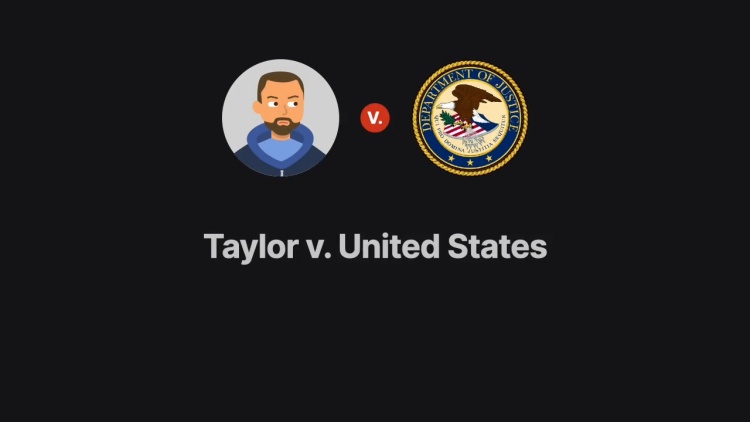Taylor v. United States
United States Supreme Court
414 U.S. 17, 94 S. Ct. 194, 38 L. Ed. 2d 174 (1973)
- Written by Salina Kennedy, JD
Facts
Taylor (defendant) was charged with four counts of selling cocaine. Taylor, who was out on bail, attended the first morning of his trial but left the courthouse at lunchtime and did not return. The court had announced that the lunch recess would end at 2:00 p.m., and Taylor’s attorney had told him to be back in the courtroom at that time. When Taylor did not appear after the lunch recess, the court delayed the trial until the following morning. Taylor failed to appear in court the following morning. Taylor’s attorney filed a motion for mistrial, arguing that continuing the trial in Taylor’s absence would violate his Sixth Amendment right to confront witnesses against him and that his absence would bias the jurors against him. The court, finding that Taylor’s absence was voluntary, denied the motion and resumed the trial, reminding the jurors several times that they could not infer guilt from Taylor’s absence. Taylor was ultimately convicted on all four counts. At his subsequent sentencing hearing, Taylor did not testify that his absence was involuntary, nor did he testify that he thought the trial would stop in his absence. The court of appeals affirmed the conviction, and the United States Supreme Court granted certiorari.
Rule of Law
Issue
Holding and Reasoning (Per curiam)
What to do next…
Here's why 899,000 law students have relied on our case briefs:
- Written by law professors and practitioners, not other law students. 47,000 briefs, keyed to 994 casebooks. Top-notch customer support.
- The right amount of information, includes the facts, issues, rule of law, holding and reasoning, and any concurrences and dissents.
- Access in your classes, works on your mobile and tablet. Massive library of related video lessons and high quality multiple-choice questions.
- Easy to use, uniform format for every case brief. Written in plain English, not in legalese. Our briefs summarize and simplify; they don’t just repeat the court’s language.





